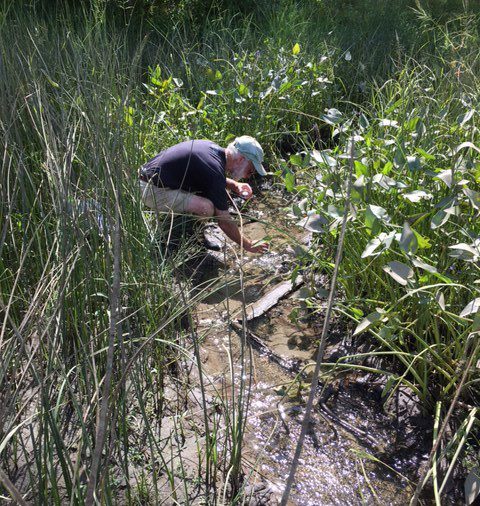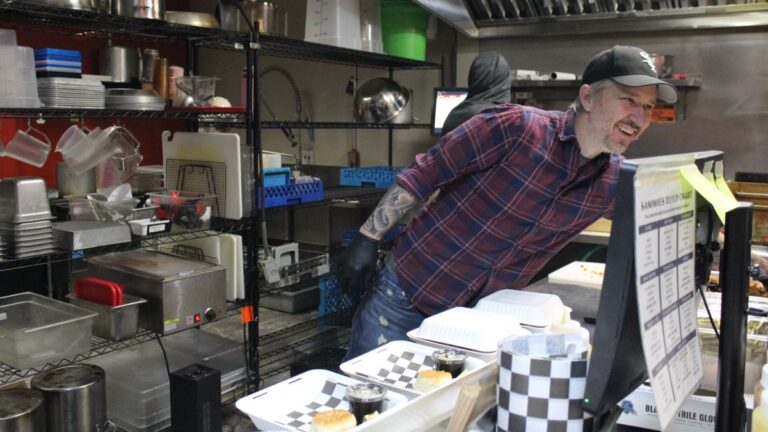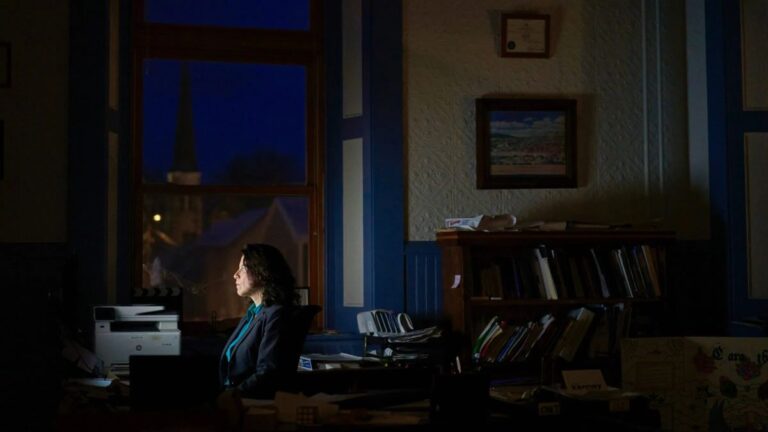When members of the regional watershed group Friends of Merrymeeting Bay (FOMB) learned about a relatively affordable PFAS water-testing kit made by the Illinois company Cyclopure, they envisioned using it to screen waters in the six rivers that feed the bay. To ensure credible results, the group’s chair, Ed Friedman, organized what he termed a “Consumer Reports-style comparison,” sending split samples from a single water source to Cyclopure, and to three labs accredited by state and federal agencies.
FOMB found that the Cyclopure kit, which uses a corn-based disk designed to extract PFAS from water, delivered comparable results to two of the accredited labs in a similar time frame (a week or two) at substantial cost savings; each kit costs less than $80 rather than between $400 and $700. (The third accredited lab failed to detect many compounds the other labs had and took more than a month to deliver results.)

PFAS Free Trenton, a citizen’s group that recently persuaded the town’s select board to approve purchasing 100 test kits for residents, chose to test with accredited labs despite the added cost, said its spokesperson, Christina Heiniger, because those tests are the only ones recognized by the state.
“DEP uses only lab-accredited processes because sampling results need to be reliable, consistent and replicable to the greatest extent possible,” the agency’s spokesperson David Madore wrote. “This is critically important as DEP makes both policy and funding decisions based upon the results obtained.”
“FOMB’s analysis and validation of the Cyclopure methodology challenges DEP’s argument and policy,” Friedman noted, adding that for the many homeowners who don’t know in advance if they will receive a state reimbursement for water-testing, the “high price of certified testing is a huge disincentive.”
Bob Bowcock, a national water consultant who is collaborating with the activist Erin Brockovich to help Maine communities address PFAS contamination, sees screening tests as a means of triage given “we’ve got an emergency on our hands,” he said. He has four full-time assistants working in Maine to locate contamination hot spots, doing preliminary screening “where you can get five test kits for the price of (an accredited) one.”
“The state could screen so many more people so much more quickly,” Bowcock added, “if they just looked at alternative strategies.”
This project was produced with support from the Doris O’Donnell Innovations in Investigative Journalism Fellowship, awarded by the Center for Media Innovation at Point Park University in Pittsburgh, Pa.








